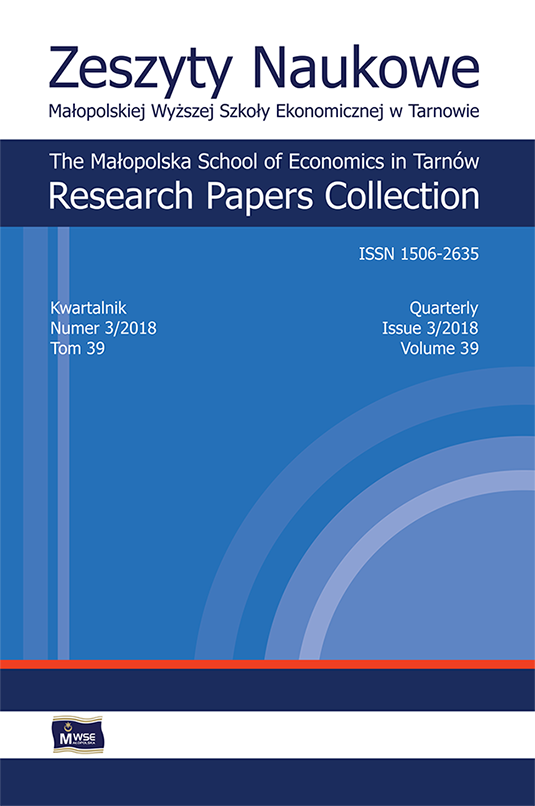Abstract
The study is an attempt at a holistic view of the determinants of functions and working time. It is considered that a more analytical view is also needed, which takes into account detailed determinants of working time. What is more, those determinants require deepen analysis. The legal determinants, technical-technological and economic conditionings, social and ergonomic aspects were selected as the subject of the analysis. The effect of these analyses was to find a strategic connector. This can provide consistency of objectives between the elements of generative system and the elements of working time. It was defined as a working method. In addition, the article includes a concept for the analysis and reconstruction of the work time system in the enterprise. The results of empirical research were also presented. Empirical research was carried out in the energy sector and in the gastronomy industry. A thesis was adopted which assume responsibility between the time system and the work method. In particular, it was considered that the achievement of the maximum production ceiling is possible, only due to the adjustment of the working time system to the components of the working method. Among the elements of the work method: technicaltechnological conditionings, elements of the work system and social determinants, in particular ergonomic working conditions were distinguished. Changing one of them causes the transformation of the working method and, consequently, requires a proper rectification of the working time system.
References
Barzycka-Banaszczyk, M. (2007). Prawo pracy. Warszawa: C.H. Beck. ISBN 9788374837460.
View in Google Scholar
Chobot, A. (2003). Czas pracy w znowelizowanym kodeksie pracy. Poznań: Wydawnictwo Poznańskie. ISBN 8371772564.
View in Google Scholar
Janus, E. (2016). Dylematy zawodowe freelancera – od bezpieczeństwa zatrudnienia do niezależności. Humanizacja Pracy, 49(1), 77–86.
View in Google Scholar
Kodeks pracy. Ustawa z dnia 26 czerwca 1974 r. T.j. Dz.U. z 2018 r., poz. 917.
View in Google Scholar
Kozioł, L. (2000). Zarządzanie czasem pracy. Kraków: Antykwa. ISBN 8387493015.
View in Google Scholar
Kozioł, L., Kozioł, M. (2018). Koncepcja analizy i rekonstrukcji systemu czasu pracy w przedsiębiorstwie. Zeszyty Naukowe Małopolskiej Wyższej Szkoły Ekonomicznej w Tarnowie, 38(2), 101–117.
View in Google Scholar
Olszewski, J. (2013). System pracy w warunkach globalnego społeczeństwa informacyjnego. Poznań: Wydawnictwo Uniwersytetu Ekonomicznego w Poznaniu. ISBN 9788374177757.
View in Google Scholar
Sanetra, W. (2011). Uwarunkowania instytucji czasu pracy. W: L. Florek (red.). Czas pracy (s. 13–34). Warszawa: Oficyna a Wolters Kluwer Business. ISBN 9788326410475.
View in Google Scholar
Walczyna, A., Łucjan, I. (2012). Postęp techniczny a humanizacja pracy. Postępy Nauki i Techniki, 12, 190–198.
View in Google Scholar
© Copyright by Małopolska School of Economics in Tarnów. The articles are available under the Creative Commons Attribution NonCommercial-NoDerivatives 4.0 International License


